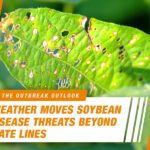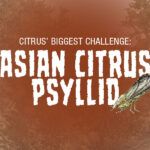Support American Land by Protecting Pollinators
Helping pollinator populations means supporting food supplies and the overall health of the planet.

Healthy pollinators and a biodiverse landscape are essential to every agricultural ecosystem. Threats to pollinator populations are due to many factors, like habitat loss and fragmentation, non-sustainable agricultural practices, environmental pollution and lack of genetic diversity.
Syngenta leverages key partnerships and collaborations to further its mission to support American farmers and their land and vital pollinators for successful crop production and biodiversity.
The BeSure! Campaign
Crop protection products, including neonicotinoids, are essential in the agriculture industry. These products help prevent and treat diseases, fight insect pests, increase overall crop yield and help ensure growers can continue to maintain and grow the U.S. food supply at a sustainable rate. Since 2019, the BeSure! campaign — led by Growing Matters, a coalition of ag companies including Syngenta — promotes best stewardship practices to protect pollinators when using neonicotinoid products on farms and urban landscapes. Growers should:
- Always read the label when using neonicotinoid products.
- Establish appropriate buffers, also known as no-spray zones, between treated areas and pollinator insect habitats or hives.
- Communicate with neighbors and beekeepers.
- Be aware of crop’s bloom stage and pollinator attractiveness.
Rusty Patched Bumble Bee Habitat Restoration Project
The pollination efforts of bees contribute nearly $20 billion to the value of crop production in the U.S. each year. Native bees are important for biodiversity and play an important role in pollinator services for crops and native plants including wildflowers. One species, the rusty patched bumble bee, was listed as endangered in 2017 making it the first endangered bee species in the continental U.S.
Syngenta, the Iowa Soybean Association and the U.S. Fish & Wildlife Service, along with Iowa landowners, joined forces on the Rusty Patched Bumble Bee Habitat Restoration Project to help protect the declining species.
The project established pollinator zones, which is marginal land converted into beneficial habitats for pollinators, and prairie strips, which are native prairie plants that are strategically placed to improve soil, water quality, biodiversity and climate resilience. The initiative created more habitat for rusty patched bumble bees, other pollinators and local wildlife to thrive, leading to a tenfold increase in rusty patched bumble bee populations since 2019.
Pheasants Forever Collaboration
Preserving habitats is essential for safeguarding the well-being of wildlife and biodiversity, forging a direct link between conservation practices and sustainable agriculture. Habitats face many challenges such as land use conversion, invasive plant species and limited diversity of native grasses and wildflowers.
Pheasants Forever and Syngenta partner to conserve habitats and promote sustainable land management practices. By working closely with farmers, ranchers and landowners, they enable projects ranging from planting native grasses and wildflowers to restoring wetlands.
Pheasants Forever’s Pollinator Habitat Outreach Program provides tools, training and financial assistance for local communities to establish habitat projects for pollinating species. In 2023, the program engaged 3,727 participants across 64 acres.
Milkweed in the Classroom is an education program dedicated to providing students with the materials and training needed to grow native plants. The initiative has involved 3,353 participants across 146 classrooms to plant 7,560 milkweed stems.
Sand County Foundation Partnership
Syngenta’s repeated and growing financial support over the past four years has helped Sand County Foundation continue our program in three states and expand the program into two new states in 2022. We aspire to grow the program further in the future to include additional states in the Midwest and beyond.
Not only are pollinators essential to agriculture, they’re also necessary to maintaining natural habitats and plant biodiversity. Through Sand County Foundation’s Pollinator Habitat Grant Program, agriculture and science educators can apply for grants online and partner with local landowners to create or enhance habitats for pollinators. Selected schools receive native wildflower seed and seedlings, a training webinar and consultation as well as a $1,000 grant for the school district or FFA chapter for project expenses.
Since the program was launched in 2017, 103 high schools have been awarded grants across Minnesota, Iowa, Wisconsin, Michigan, Illinois and Texas, engaging 11,000 students to plant more than 64,000 wildflower plugs. Sand County Foundation surveyed students who had completed projects supported by the grant program and found that over 95% of the students reported that the experience raised their awareness of how important pollinators are to the health of our agricultural system.
“Syngenta’s repeated and growing financial support over the past four years has helped Sand County Foundation continue our program in three states and expand the program into two new states in 2022,” says Craig Ficenec, program director of Sand County Foundation. “We aspire to grow the program further in the future to include additional states in the Midwest and beyond.”
4 Min Read
- Pollinators are essential to maintaining successful agricultural systems.
- Each of us plays a part in preserving the land and protecting pollinators.
- When various organizations work together, a more resilient ecosystem can be created.












